Description
ABSTRACT
Registration of Trademarks: Safeguarding Business Interests and Protecting Consumers against Confusion
Yahya Hambali*
Trademark is one of the three components of intellectual property. Apart from protecting the interest of registered owners, registration of trademarks also secure the interests of unsuspecting consumers against confusion that may arise when they are faced with two or more products of different origins bearing similar insignias. The article examines the provisions of the Trade Marks Act against the background of various decided cases especially by the Supreme Court. It discusses extensively the conditions for registration under Part A and Part B of the register and highlighted the practical steps in registration of trademarks. It concluded by examining the controversy surrounding registration of service marks.
INTRODUCTION
Trademark is one of the intangible properties protected and dealt with by the intellectual property laws, the other two being patent and copyright. The intervention of law is necessary to protect unsuspecting members of the public and the consumers of product from confusions arising from products of different origins but bearing similar insignia. It is also to protect the registered owner of mark or person, who though not being the registered owner but has evidence of continuous use of the mark, against any damage to their trade as a result of the use of the mark by another producer.
In this paper, the legal and regulatory framework of trademarks law is examined with a view to bringing out the legal protection offered by the law to users of marks to distinguish their products from others and how such protection can be fully harnessed. The paper begins with the definition and conceptual framework of trademarks before looking briefly at how the laws on trademarks crept into Nigeria. The paper thereafter dwells on the process of registration of trademarks bringing out at different stages, the judicial interpretations of relevant provisions of the Trade Marks Act which is the applicable law in the country. Opinions of some scholars are also explored to explain the concepts. As it is always the case in business, the paper identifies the need to discuss the case of infringement of marks and how the proprietor of a mark that is infringed can seek redress. The paper wraps up with a brief conclusion.
DEFINITION AND CONCEPT OF TRADEMARKS
The Trade Mark Act1 is the applicable law in Nigeria. According to the interpretation section of the Act,
Trade mark ”means except in relation to a certification trade mark, a mark used or proposed to be used in relation to goods for the purpose of indicating, or so as to indicate, a connection in the course of trade between the goods and some person having the right either as proprietor or as registered user to use the mark, whether with or without any indication of the identity of that person, and means, in relation to a certification trade mark, a mark registered or deemed to have been registered under section 43 of this Act”.2
* LL.M (London), BL. Deputy Director, Nigerian Law School and research student at the School of Law, Queen’s University, Belfast, Northern Ireland
- Cap T13 Laws of the Federation of Nigeria (LFN) 2004 hereafter referred to TMA
- TMA s 67

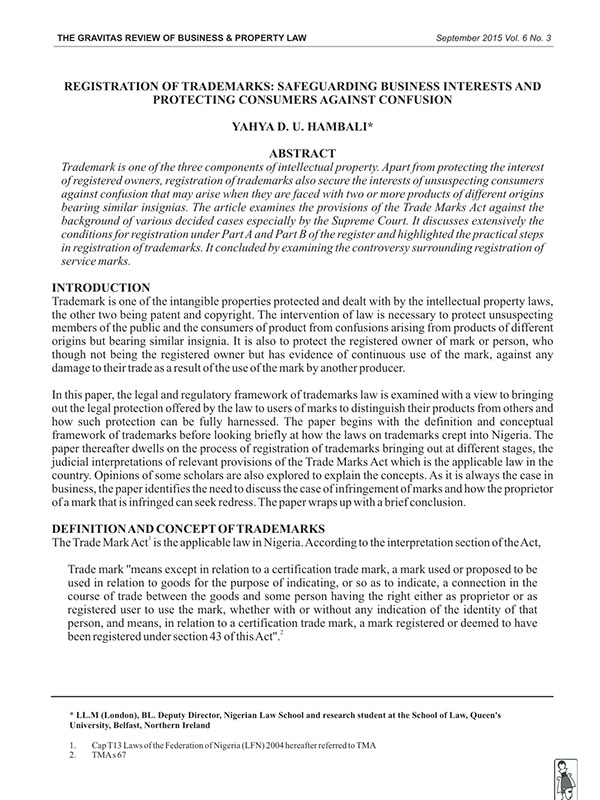
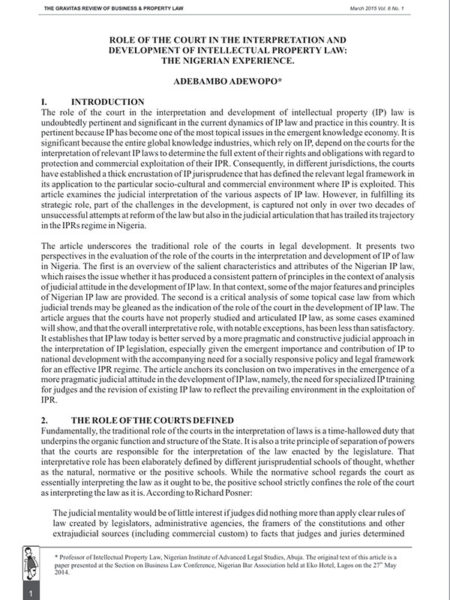
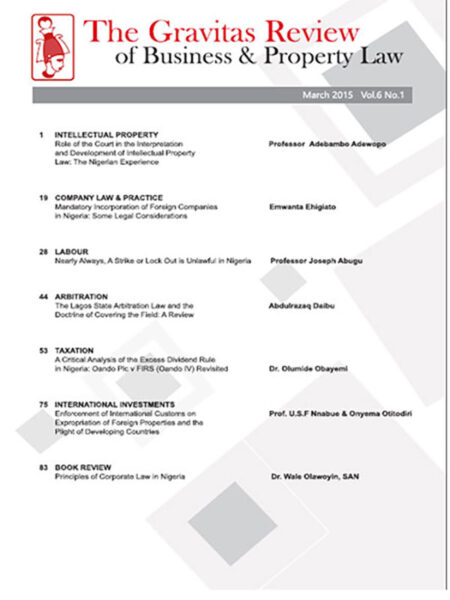
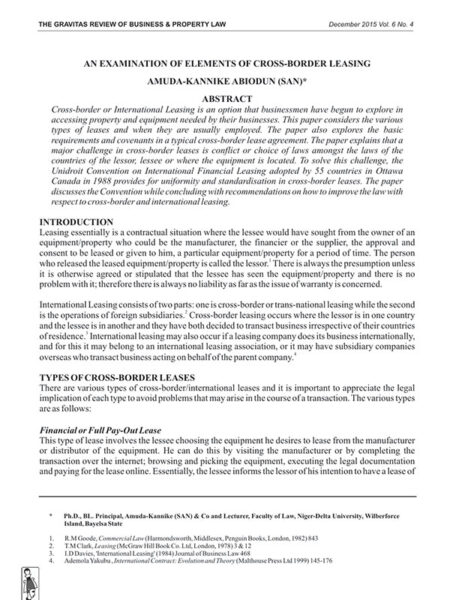
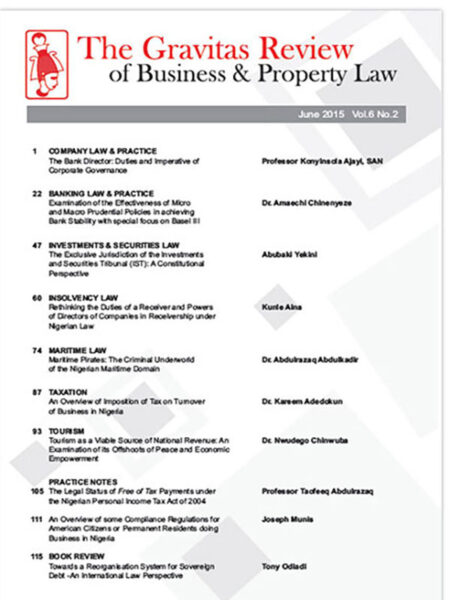


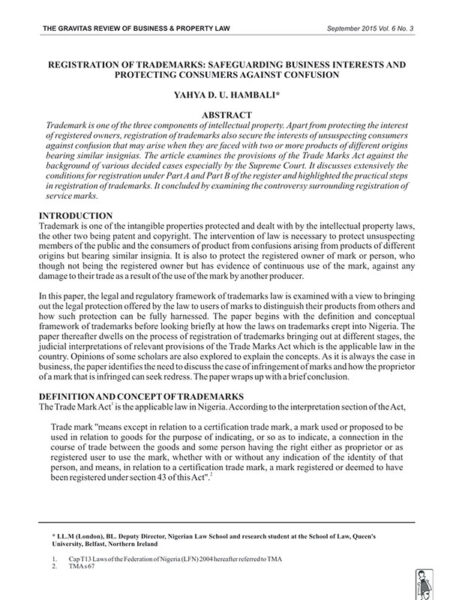
Reviews
There are no reviews yet.